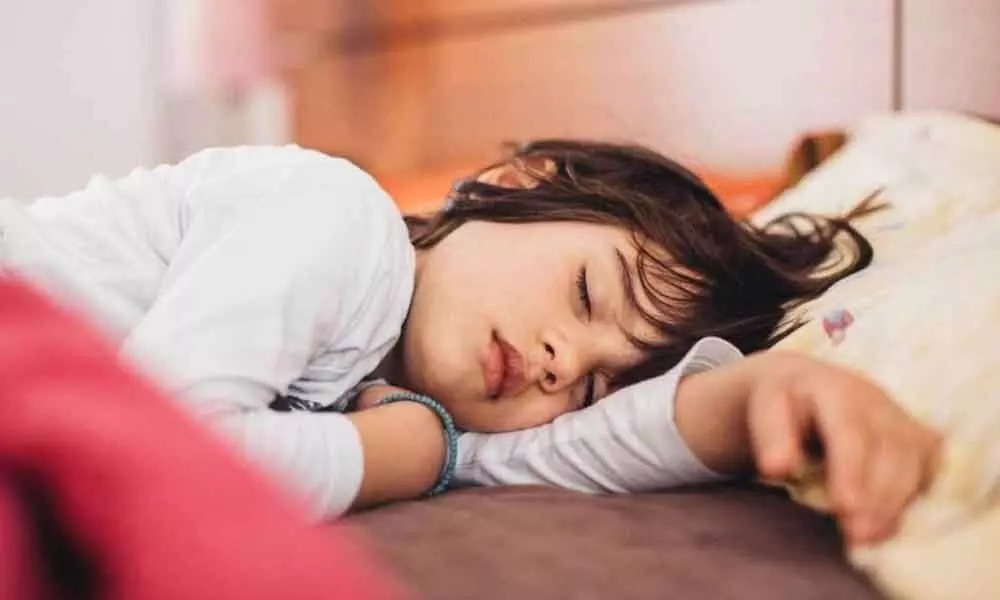Kids who do not sleep enough may face mental health issues

Both girls and boys who get less sleep are at greater risk for future emotional problems. The measurements do not indicate anything about the quality of sleep
Is your child getting enough sleep? If not, read this carefully. Researchers have found that children who get the least sleep have the greatest risk of developing mental health issues.
"If we make sure our children get enough sleep, it can help protect them from mental health problems," said study researcher Bror M Ranum, Norwegian University of Science and Technology's (NTNU) in the Norway.
A study of almost 800 children followed over several years shows that those who get the fewest hours of sleep are at greatest risk of developing psychiatric difficulties later, including ADHD, anxiety and depression.
"We're seeing an association between sleep duration and a risk of symptoms of emotional and behavioural disorders," Ranum added.
According to the findings, published in the journal JAMA Network Open, boys who sleep fewer hours have an increased risk of developing behavioural issues.
Both girls and boys who get less sleep are at greater risk for future emotional problems. The measurements do not indicate anything about the quality of sleep.
Children's sleep was measured with motion sensors every night for a week. The researchers conducted clinical interviews to measure mental health difficulties. These procedures were repeated several times every two years.
The study is part of the Tidlig Trygg I Trondheim project (TtiT - Trondheim Early Secure Study). This is a long-term study that has examined nearly a thousand children when they were 4, 6, 8, 10, 12 and 14 years old.
The researchers also investigated whether psychological difficulties might cause children to sleep less. The data do not indicate this to be the case. Sleep duration influences the risk of later problems, not the opposite.
"Previous studies have also shown that sleep is related to mental health difficulties. But our study is one of the first to investigate this in children over several years, and to use an objective measurement of sleep," said senior author Silje Steinsbekk.
Because people tend to be quite poor at reporting how much sleep they get, scientists cannot completely rely on people's self-reported sleep duration data.
Self-reported sleep duration does not correlate with objective sleep duration measurements.
Laboratory studies measure sleep objectively, but this research study is measuring only the immediate effects and does not comment on whether sleep duration affects individuals' psychiatric health over time.
"Our study shows that the children who sleep fewer hours than others more often develop psychiatric symptoms, even two years later," Steinsbekk said.
The research group has also investigated how many people get too little sleep, and whether or not too little sleep tends to persist throughout childhood.
Very few six-year-olds (1.1 per cent) slept less than 7 hours, which is below the internationally recommended sleep guidelines for this age group.
According to the World Health Organisation (WHO), Children with 3-4 years of age should have 10-13 hours of good quality sleep, which may include a nap, with regular sleep and wake-up times.











